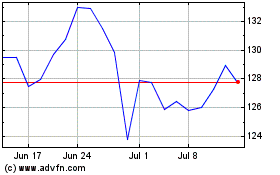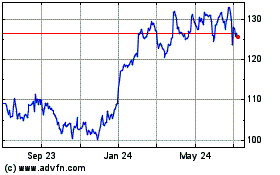Africa and India Still Bear Highest Burden
of Annual Rabies Deaths
Today marks the midway milestone for World Rabies Day, when the
Global Alliance for Rabies Control, together with health
organizations from around the world, set a goal of eliminating
human rabies transmitted by dogs by 2030. Merck Animal Health
(known as MSD Animal Health outside the United States and Canada)
is pleased to announce our continued support in the fight against
rabies through the donation of NOBIVAC® Rabies vaccine and other
resources to the Afya Serengeti Project and Mission Rabies,
organizations working to eliminate this disease in the world’s most
at-risk regions.
Rabies, a neglected disease of vulnerable populations, is nearly
100 percent fatal but also nearly 100 percent preventable through
canine vaccination. Africa and India still bear the highest burden
of total annual rabies deaths.i Countries with the highest
fatalities from rabies are India, Democratic Republic of the Congo,
Ethiopia, China and Myanmar.ii
“Each year, an estimated 60,000 people die from rabies, with 40
percent of those deaths occurring in children under the age of
fifteen,” said Ingrid Deuzeman, global marketing director, Merck
Animal Health. “We are resolved to continue our collaboration with
the Afya Serengeti Project, which we’ve been committed to for more
than 15 years, and with Mission Rabies, in support of the global
health community goal to eliminate rabies.”
Progress in the Fight Against Rabies
In more than 20 participating countries, when pet owners and
veterinarians choose NOBIVAC vaccines, it allows Merck Animal
Health to donate rabies vaccine to Mission Rabies and the Afya
Serengeti Project.
“Mission Rabies launched at the end of 2013 and to date we’ve
delivered the NOBIVAC Rabies vaccine to 700,000 street dogs in some
of the world’s worst rabies hotspots. Our flagship projects are
delivering amazing results with no human rabies cases having been
reported in the Indian city of Ranchi, the State of Goa or the city
of Blantyre in Malawi so far this year. It’s incredible considering
just a few years ago, a hospital in Blantyre (the Queen Elizabeth
Central Hospital) was reporting the highest incidence of child
rabies deaths from any single institution in the whole of Africa,”
said Luke Gamble, founder, Mission Rabies. “We are all driven to
power Mission Rabies forward and without the support of Merck
Animal Health NOBIVAC Rabies vaccine, we couldn’t do what we do.
The vaccine is saving lives amongst some of the poorest and most
vulnerable people in the world and it’s a privilege to be a part of
this project with everyone.”
“The human toll of rabies is needless and tragic. However, over
the past 20 years, we have shown that vaccination programs can
reach enough dogs to eliminate rabies anywhere in the world,” said
Professor Sarah Cleaveland, founder, Afya Serengeti Project. “With
continued support from Merck Animal Health and other collaborators,
I believe we have the vaccine and the tools to achieve zero human
deaths from dog rabies by 2030.”
For more information, visit www.afya.org, www.missionrabies.com
and http://rabiesalliance.org/world-rabies-day. Please see
Prescribing Information for NOBIVAC® Vaccines at
www.nobivac.com.
Eliminating Rabies in India and Africa
Since 2013, Mission Rabies has set a goal to vaccinate dogs
across rabies hotspots in India, where over a third of all human
rabies deaths occur.iii Based on the program’s success in India,
Mission Rabies has expanded its offering to Africa.
Mission Rabies does more than just vaccinate hundreds of
thousands of dogs against rabies each year. They go to schools and
educate children in these communities, informing them of the
seriousness of the disease. Children are the most affected by
rabies because they play with dogs and don’t understand how deadly
rabies can be.
Using a fast-paced team of veterinarians and volunteers, Mission
Rabies has so far vaccinated more than 505,000 dogs, trained 80
veterinarians, and educated more than 1,200,000 children about the
risk of rabies.
Saving Lives in the Serengeti
The Afya Serengeti Project has prevented thousands of deaths in
the Serengeti through the widespread vaccination of domestic dogs.
Since the start of the program, the incidence of human rabies,
rabies in dogs and rabid dog bites has dropped to an all-time
low.iv Each year, over 600 dog rabies cases have been prevented and
23 human lives saved. The effective control of rabies through dog
vaccination has also had benefits for wildlife, including
endangered African wild dogs, which have become re-established in
the Serengeti National Park for the first time since the population
disappeared as a result of rabies outbreaks in the early 1990s.
Understanding the importance of providing vaccinations to other
at-risk areas, the Afya Project has extended to Kenya, Bangalore
and the Pune region of India.
About Merck Animal Health
For more than a century, Merck, a leading global
biopharmaceutical company, has been inventing for life, bringing
forward medicines and vaccines for many of the world’s most
challenging diseases. Merck Animal Health, known as MSD Animal
Health outside the United States and Canada, is the global animal
health business unit of Merck. Through its commitment to the
Science of Healthier Animals™, Merck Animal Health offers
veterinarians, farmers, pet owners and governments one of the
widest range of veterinary pharmaceuticals, vaccines and health
management solutions and services. Merck Animal Health is dedicated
to preserving and improving the health, well-being and performance
of animals. It invests extensively in dynamic and comprehensive
R&D resources and a modern, global supply chain. Merck Animal
Health is present in more than 50 countries, while its products are
available in some 150 markets. For more information, visit
www.merck-animal-health.com or connect with us on LinkedIn,
Facebook and Twitter at @MerckAH.
Forward-Looking Statement of Merck & Co., Inc.,
Kenilworth, N.J., USA
This news release of Merck & Co., Inc., Kenilworth, N.J.,
USA (the “company”) includes “forward-looking statements” within
the meaning of the safe harbor provisions of the U.S. Private
Securities Litigation Reform Act of 1995. These statements are
based upon the current beliefs and expectations of the company’s
management and are subject to significant risks and uncertainties.
If underlying assumptions prove inaccurate or risks or
uncertainties materialize, actual results may differ materially
from those set forth in the forward-looking statements.
Risks and uncertainties include but are not limited to, general
industry conditions and competition; general economic factors,
including interest rate and currency exchange rate fluctuations;
the impact of pharmaceutical industry regulation and health care
legislation in the United States and internationally; global trends
toward health care cost containment; technological advances, new
products and patents attained by competitors; challenges inherent
in new product development, including obtaining regulatory
approval; the company’s ability to accurately predict future market
conditions; manufacturing difficulties or delays; financial
instability of international economies and sovereign risk;
dependence on the effectiveness of the company’s patents and other
protections for innovative products; and the exposure to
litigation, including patent litigation, and/or regulatory
actions.
The company undertakes no obligation to publicly update any
forward-looking statement, whether as a result of new information,
future events or otherwise. Additional factors that could cause
results to differ materially from those described in the
forward-looking statements can be found in the company’s 2016
Annual Report on Form 10-K and the company’s other filings with the
Securities and Exchange Commission (SEC) available at the SEC’s
Internet site (www.sec.gov).
i World Health Organization. Rabies Fact Sheet: Epidemiology.
Accessed June 23, 2017 at
http://www.who.int/rabies/epidemiology/en/.ii Hampson K, et al.
Estimating the global burden of endemic canine rabies. PLoS Negl
Trop Dis. 2015;9(4). Accessed June 23, 2017 at
http://journals.plos.org/plosntds/article?id=10.1371/journal.pntd.0003709#pntd.0003709.s002.iii
World Health Organization. Bulletin of the World Health
Organization. “India’s ongoing war against rabies.” Bulletin of the
World Health Organization. Volume 87, Number 12, December 2009,
885-964. Accessed June 17, 2015 via
http://www.who.int/bulletin/volumes/87/12/09-021209/en/.iv Kaare M,
Lembo T, Hampson K, et al. Rabies control in rural Africa:
evaluating strategies for effective domestic dog vaccination.
Vaccine. 2009;27(1):152–160.
View source
version on businesswire.com: http://www.businesswire.com/news/home/20170928005329/en/
For Merck Animal Health:Logan Rizzo, 973-937-5590orPam Eisele,
267-305-3558
Merck (NYSE:MRK)
Historical Stock Chart
From Mar 2024 to Apr 2024

Merck (NYSE:MRK)
Historical Stock Chart
From Apr 2023 to Apr 2024
